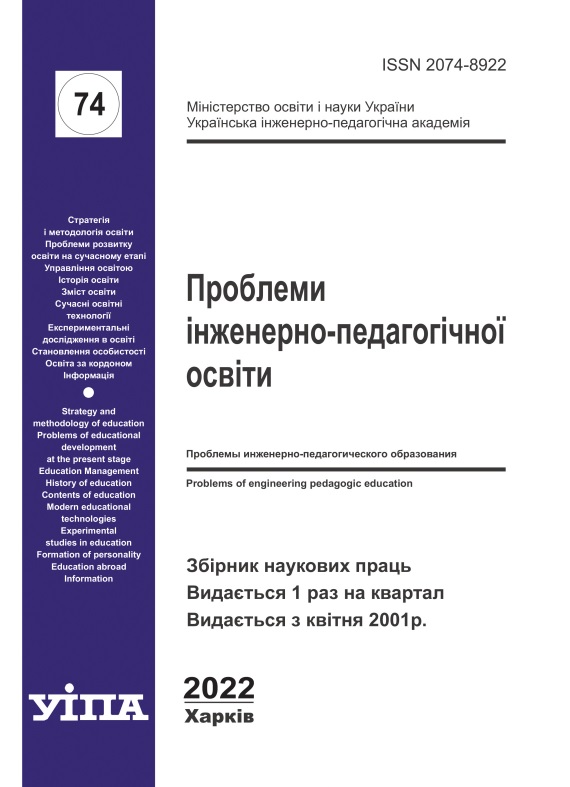Abstract
The article deals with the issue of individualization and differentiation of foreign language training of
cadets of Internal Affairs Universities. It is emphasized that differentiation in learning is associated with the
individualization of students. The primary pedagogical task is to take into consideration the individual
characteristics of students in the academic process. Teaching a foreign language requires an individual
approach more than any other discipline. The directions of differentiation for a foreign language teaching at
Internal Affairs Universities (differentiation of the content and differentiation of the teaching process by
means of methods and forms of work) have been outlined; the aspects of the differentiation principle
realization in the academic process (differentiation in planning and goal-setting, differentiation when using
teaching foreign language material, differentiation by means of mastering foreign language material,
differentiation of forms of speech interaction) have been specified in the article. The author emphasizes that
group work plays an important role in using personality-oriented approach in teaching a foreign language
and offers methodological recommendations for forming study groups of cadets. In the article, it is noted that
the effectiveness of teaching a foreign language is also hampered by the problem of low foreign language speech activity of the cadets, which is caused by the fact that their vocabulary is not extensive enough and
that they fear to make a mistake. In order to solve this problem, the author proposes to evaluate both speech
presentation and the content of the speech; to encourage cadets to paraphrase lexical units (if they know any
lexeme); to correct mistakes only after the speech is finished; first of all to pay attention to gross mistakes
(leading to misunderstanding or distorting the meaning of the expression).
The article concludes that today's requirements for police officers include not only special training and
knowledge of the law, but also general communication skills and the ability to carry out intercultural
professional communication. Police officers should be able to get on with different people, even if they
speak different languages. Speech barriers inevitably reduce the effectiveness of police work, so the effective
formation of foreign language communicative competence of police officers is one of the urgent and primary
tasks at the present stage, the solution of which is largely facilitated by differentiated methods of foreign
language teaching.

This work is licensed under a Creative Commons Attribution-NonCommercial-NoDerivatives 4.0 International License.
Copyright (c) 2023 Problems of Engineer-Pedagogical Education


